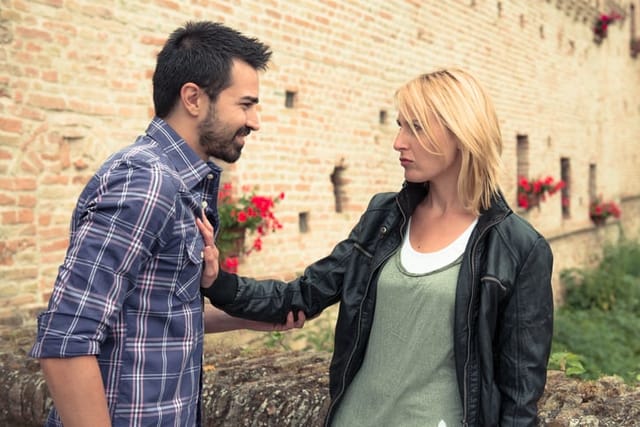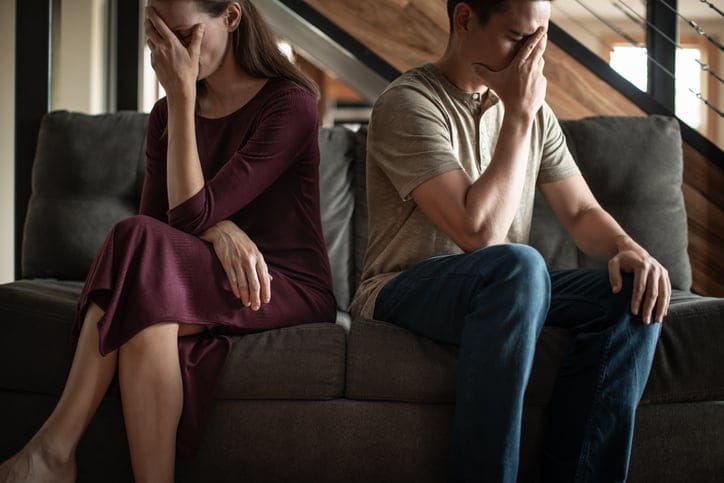When you’re emotionally close to someone or something, it makes sense to have knee-jerk reactions when you’re triggered by particular words or situations. However, there is such a thing as being a little too defensive, and if you don’t keep this behavior in check, it won’t be long before your relationships fall to pieces.
1. You’re Always Ready to Fight, Even Over Small Things.

Ever find yourself getting into arguments over the tiniest things? If you’re always on edge, ready to defend yourself, it’s a sign you’re too defensive. This kind of constant guard can be exhausting, not just for you but for everyone around you. Think about it: every conversation doesn’t need to be a battle. Sometimes, people just want to talk, not argue. If you’re quick to snap or jump into defense mode, take a step back and breathe. Not every comment or critique is an attack on your character. Learning to differentiate between the two can save a lot of headaches and heartaches.
2. You Never Admit You’re Wrong — Like, Ever.

Do you find it impossible to say “I messed up”? Always needing to be right is a hallmark of being too defensive. It’s tough to admit when you’re wrong, but nobody’s perfect. Constantly defending your actions, even when you clearly made a mistake, can push people away. It’s frustrating to deal with someone who can’t own up to their faults. Acknowledging your mistakes isn’t a sign of weakness; it’s a strength. It shows you’re open to learning and growing. Plus, saying “I was wrong” can sometimes be the quickest way to diffuse a tense situation.
3. You Take Everything Personally.
If you find yourself getting offended by every little comment, it might be a sign of defensiveness. Not everything said to you is a personal dig. Sometimes a joke is just a joke, and sometimes feedback is just feedback. Taking everything to heart can make relationships tricky. It puts people on edge, as they have to tread carefully around you. It’s important to remember that not everything is about you. Learning to let some things slide off your back will not only make your interactions smoother but will also make you feel more at ease. (BTW, if this is something you struggle with in relationships, hit up our sister site, Sweetn. They have all the tips, tricks, and advice you need to totally change your love life for the better in just a few weeks.)
4. You’re the Master of the Counterattack.
Is your go-to strategy in an argument to flip the script and attack the other person? This is classic defensiveness. Instead of addressing the issue at hand, you go on the offensive. This can escalate arguments and hurt feelings. It’s like throwing fuel on a fire. Remember, just because someone points out something about you doesn’t mean you need to retaliate. It’s not a competition. Taking a moment to actually listen and reflect on what’s being said, rather than immediately responding with a counterattack, can change the whole dynamic of the conversation.
5. You’re Always the Victim in Every Story.
Do you often feel like the world is against you? If you see yourself as the perpetual victim, it might be a sign of defensiveness. When you constantly blame others and don’t acknowledge your role in a situation, it can strain your relationships. It’s exhausting for people around you if they feel they’re always the “bad guy” in your story. It’s important to realize that sometimes, you might be part of the problem. Acknowledging this doesn’t mean you’re a bad person; it means you’re human. Taking responsibility can be empowering and can help mend and strengthen your relationships.
6. You Shut Down or Walk Away When Criticized.

Do you find yourself shutting down or walking away when facing criticism? This can be a big red flag for defensiveness. Avoiding tough conversations or feedback doesn’t solve anything. It just leaves issues unresolved and can make the other person feel ignored or undervalued. Understand that feedback, even when it’s hard to hear, is a part of life. It helps us grow. Instead of shutting down, try to stay engaged in the conversation. Listen to what’s being said. This doesn’t mean you have to agree with everything, but being open and present can make a huge difference in how you handle relationships.
7. Your Apologies Come with a ‘But’.
Do your apologies often include a ‘but’? This is a subtle yet clear sign of being defensive. Saying “I’m sorry, but…” negates the apology. It shifts the blame and makes the other person feel their feelings are not valid. A true apology acknowledges the mistake and your role in it, without excuses. It’s about taking responsibility. This can be hard, but it’s crucial for healthy relationships. Next time you apologize, try dropping the ‘but’ and see how the tone of the conversation changes. An honest, no-excuse apology can work wonders.
8. You Always Need the Last Word.
Feeling the need to always have the last word can be a symptom of defensiveness. It’s like you can’t let anything go until you’ve had your say. This can be exhausting for everyone involved. It’s not necessary to win every argument or have the final say in every discussion. Sometimes, it’s okay to agree to disagree. Try letting someone else have the last word sometimes. It doesn’t mean you’re giving up or admitting defeat; it means you value the relationship more than winning the argument. This small change can lead to more peaceful and fulfilling interactions.
9. You’re Quick to Blame Others for Your Mistakes.
If you find yourself always pointing fingers at others for your mistakes, it’s a classic defense mechanism. Blaming others not only avoids addressing the real issue but also damages trust and respect in your relationships. It’s important to take ownership of your actions. Everyone makes mistakes, but not everyone has the courage to admit them. Owning up to your mistakes shows maturity and earns respect. Plus, it sets a good example for those around you. Remember, accountability is key in maintaining healthy and honest relationships.
Enjoy what you’ve read? Give us a like and follow Bolde on MSN for more!









